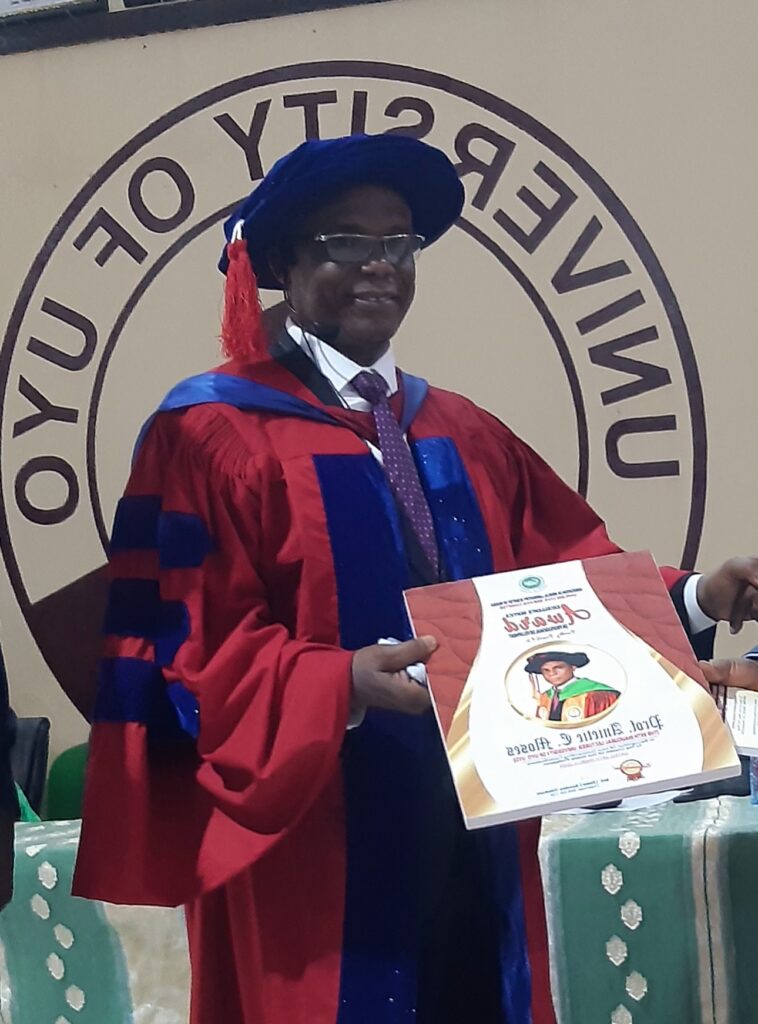Ini Umo, Uyo
Public health expert, Prof. Anietie Effiong Moses has warned that open defecation and indiscriminate cattle litter exposes Nigerians to health risks.
Moses, Professor of Medical/Public Health Microbiology and Microbial Immunology, explained that pathogens created by open defecation and cattle litter find their way to water bodies and the food chain which is dangerous to the health.
Speaking on Thursday in Uyo during the 99 Inaugural lecture at the University of Uyo on the topic, “Survival of the Fittest in the Kingdom of Unequal: Microbial Idiosyncrasies and Human Coexistence,” Prof. Moses called for the end of open defecation and indiscriminate cattle litter.
He also said children and the elderly, especially in rural areas are at risk of gastroenteritis due to contaminated drinking water.
“Man as a higher being must do the needful to stay fit including taking appropriate measures to prevent unhealthy encounters with infections.
“’Survival of the Fittest in the Kingdom of Unequal’ entails, above all, humans availing themselves of various immunization regimens to stay fit resulting from idiosyncrasies.
“Human activities such as open defecation, allowing cattle to indiscriminately litter the environment with faeces that may cause pathogens to easily find their way into water bodies and the food chain, have exposed everyone to health risks.
“Lack of potable water, the proliferation of untreated boreholes and drinking of commercial unbranded water sachet, coupled with a low level of knowledge of basic hygiene practices, especially among rural dwellers are risk factors for gastroenteritis, especially among children and the elderly,” he stated.
Prof Moses recommended the regular monitoring mandatory assessment and certification of water sources and the maintenance of high hygiene standards in public abattoirs to mitigate the prevalence of infections.
He called for the domestication of the global action plan on antimicrobial resistance and taking necessary steps to stop the spread of infections.
Prof. Anietie Effiong Moses, Professor of Medical/Public Health Microbiology and Microbial Immunology

